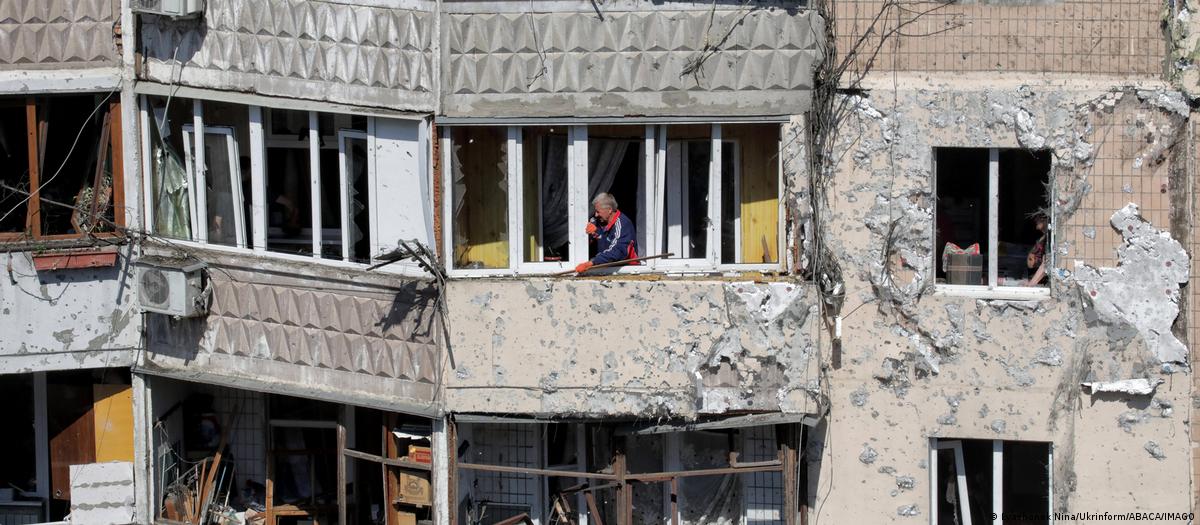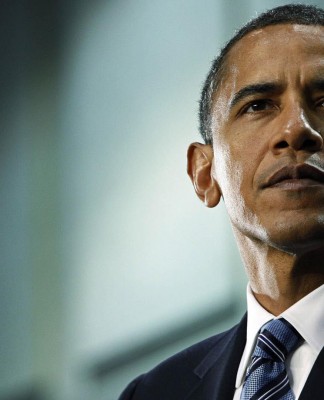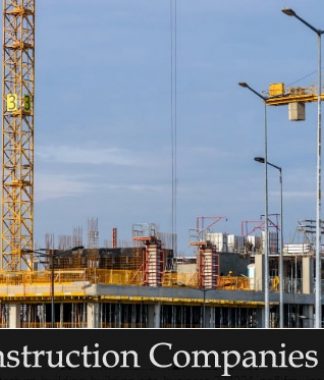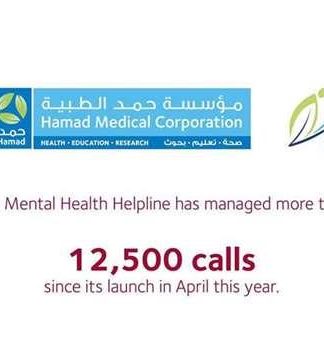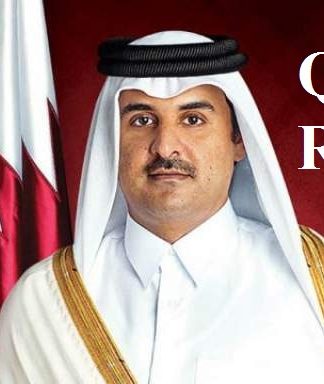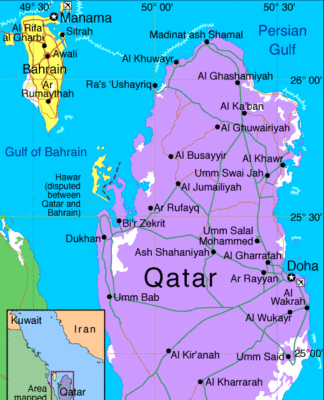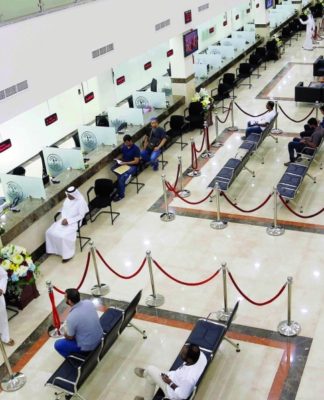Live TV
Latest audio
Latest videos
CONFLICTSUKRAINE
Ukraine updates: Odesa hit by deadly Russian missile attack
Published 17 hours agoPublished 17 hours agolast updated 27 minutes agolast updated 27 minutes ago
Several were killed when a Russian missile strike on the Ukrainian port city of Odesa hit a retail warehouse, officials say. Meanwhile, Belarus says it has started taking delivery of nuclear weapons. DW has the latest.
https://p.dw.com/p/4SXgW
People stay on the balconies of an apartment building affected by the overnight attack of Russian troops that involved missiles
An apartment building in Odesa was also affected by the overnight attackImage: Lyashonok Nina/Ukrinform/ABACA/IMAGO
Russia launched four cruise missiles at the Ukrainian port city of Odesa from a ship in the Black Sea overnight to Wednesday, with a strike on a civilian building killing at least three people, Ukraine’s military said.
“As a result of air combat and blast waves, a business center, an educational institution, a residential complex, food establishments and shops in the city center were damaged,” the Operational Command South arm of Ukraine’s Armed Forces said on the Telegram messaging app on Wednesday.
Thirteen people were also injured in the attack, it said, and three of the four missiles launched were intercepted by air defenses.
The three people killed were working at a retail chain’s warehouse when a missile hit, it said, saying there might be others buried beneath rubble at the site.
A view of a shopping mall damaged by a reported Russian missile strike A view of a shopping mall damaged by a reported Russian missile strike
The overnight attack on Odesa reportedly damaged several buildings, including this shopping mallImage: State Emergency Service of Ukraine/REUTERS
The reports have not yet been independently verified.
Russia has always denied targeting civilian infrastructure during its full-scale invasion of Ukraine since February last year. It has not commented on the latest reported attacks.
The United Nations cultural agency UNESCO in January designated the historic center of Odesa as a World Heritage in Danger site .
The reported attacks on Odesa come a day after an aerial attack on Kryvyi Rih, the hometown of Ukraine’s President Volodymyr Zelenskyy, killed 11 people.
A separate Russian missile strike in Ukraine’s eastern Donetsk region also killed three people overnight, the governor Pavlo Kyrylenko said on Facebook.
He said two people were killed in Kramatorsk and another in Kostiantynivka.
NATO General says too early to assess Ukraine’s fightback
00:39
Here are other main headlines concerning Russia’s invasion of Ukraine on Wednesday, June 14:
Captured Ukrainian soldiers face trial in Russia
More than 20 Ukrainian soldiers who were taken prisoner during fighting in Ukraine have gone on trial in southern Russia.
The captured soldiers were members of the Azov battalion, an elite Ukrainian armed forces unit that fought Russian troops in the Sea of Azov port of Mariupol.
Russian authorities have designated the Azov battalion as a terrorist group. The soldiers face sentences ranging from 15 years to life in prison if convicted.
Russian nuclear weapons arriving in Belarus: Lukashenko
Belarusian President Alexander Lukashenko has said his country started taking delivery of Russian tactical nuclear weapons.
“We have missiles and bombs that we have received from Russia,” Lukashenko said in an interview with the Russian state TV channel Rossiya-1.
“The bombs are three times more powerful than those [dropped on] Hiroshima and Nagasaki,” he said.
Lukashenko’s announcement comes after Russian President Vladimir Putin in March announced a plan to deploy tactical nuclear weapons in Belarus.
This represents the first time Moscow has moved nuclear warheads outside Russia since the 1991 fall of the Soviet Union.
Since the beginning of Russia’s full-scale invasion of Ukraine in late February 2022, Belarus has supported its ally and allowed it to stage attacks from its territory at the start of the aggression.
In 1945, the US attacked the Japanese cities of Hiroshima and Nagasaki with atomic bombs with the power of 15 kilotons and 21 kilotons of TNT respectively, killing and maiming hundreds of thousands of people. The technology was extremely nascent at the time, the nuclear bombs were only the second and third ever to be used (after one successful test detonation) and were very low-yield compared to what’s now possible.
Russia placing nuclear weapons in Belarus doesn’t make much difference: John Erath, Centre for Arms Control Non-Proliferation
01:30
IAEA’s Grossi delays visit to Zaporizhzhia plant
A visit by the UN’s nuclear chief to the Russian-held Zaporizhzia nuclear power plant planned for Wednesday has been delayed, Ukrainian sources and Russian news agencies say.
Rafael Grossi, who held talks in Kyiv on Tuesday with President Volodymyr Zelenskyy, delayed his trip to the endangered facility for safety reasons, according to a Ukrainian government official who spoke to Reuters news agency on condition of anonymity. The official did not say when Grossi would arrive at the plant, which is located in southeastern Ukraine.
The official spoke of a delay of “some hours,” while Russian news agency Interfax quoted a Russian-installed local official as saying the visit would be pushed back by a day.
The safety of the plant, Europe’s largest, already undermined by nearby fighting, has been even further compromised by the recent breach of the Kakhovka dam, whose reservoir served to cool the facilitiy.
A view shows the Zaporizhzhia Nuclear Power Plant A view shows the Zaporizhzhia Nuclear Power Plant
An IAEA team has been at the Zaporizhzia plant since JanuaryImage: Alexander Ermochenko/REUTERS
A senior Russian-installed official said on Wednesday that the plant could get the cooling water it needs from its own artesian wells if the level of the reservoir fell too much.
Germany’s Scholz says invasion has given ‘impetus’ to new security strategy
German Chancellor Olaf Scholz and members of the Cabinet have presented Germany’s long-delayed National Security Strategy, the first such comprehensive policy document in the history of the country.
The chancellor cited the invasion of Ukraine, the ongoing war and the destruction of critical infrastructure such as the Nord Stream pipelines as providing a new impetus for pushing ahead with the plan.
“I emphasize all the events to make clear how starkly the security environment has changed for German in the past 1 1/2 years,” Scholz said, saying that whatever happened, it remained the core task of a state to ensure the security of its citizens.”
By establishing a comprehensive strategy, the government hopes to avert the sometimes embarrassing failures it has suffered in the past in the face of new security challenges. Among other things, the strategy pledges to allocate 2% of GDP “as an average over a multi-year period, to reaching NATO capability goals.”
Scholz’s three-party government agreed to create a more comprehensive security strategy within a year in its coalition pact in November 2021, but inter-party and ministry disputes along the way meant it was delayed.
Ukraine: Small advances in ‘extremely fierce’ fighting
04:14
No evidence Ukrainian soldiers committed war crimes: German Bundeswehr
Suspicions of Ukrainian soldiers perhaps having committed atrocities that arose during military training in Germany have not been substantiated, the German army says, as reported by the dpa news agency.
Indications of suspicious video sequences shown by Ukrainians had emerged in feedback questionnaires on training courses provided in Germany as part of the EU Training Mission (EU). However, further inquiry showed that these were only known from hearsay or were already circulating in social media.
The Bundeswehr had reported the suspicions to federal prosecutors. A spokesman said that “we take all suspicions very seriously, especially in the case of suspected war crimes, and immediately initiate all necessary measures.”
Some 4,500 Ukrainian soldiers have so far been trained in Germany.
A Ukrainian soldier talking to a German soldier at the Bundeswehr training area in MünsterA Ukrainian soldier talking to a German soldier at the Bundeswehr training area in Münster
Germany is helping train Ukrainian troopsImage: Gregor Fischer/AP/picture-alliance
Moscow calls for ‘transparent’ probe of Nord Stream blasts
A high-ranking Russian diplomat to the US has called for a “transparent and objective” international investigation of the bombings of the Nord Stream 1 and Nord Stream 2 natural gas pipelines in the Baltic Sea in late September last year.
“It would be useful to think about the reasons for the stubborn unwillingness of the collective West to launch a transparent and objective international investigation under the auspices of the UN Security Council in the terrorist attacks in the Baltic Sea,” Andrey Ledenev, a minister-counsellor, was quoted as saying in a post on the Russian Embassy’s Telegram messaging channel.
Ledenev also said the role of the US in the blasts should also be “clarified” after reports that the US allegedly warned Ukraine not to attack the pipelines.
So far, it has proven impossible to identify the perpetrators of the sabotage. Investigators say, however, that the scale of the operation means it was likely to have had state backing, with a number of nations having a possible interest in damaging or destroying the pipelines.
The prosecutor leading the Swedish investigation of the sabotage, Mats Ljungqvist, has told Swedish radio that he hopes to identify those behind it by the fall and that he was working together with the German prosecutor on the case.
Ukrainian forces shell Nova Kakhovka: Russia-installed administration
A residential area of the city of Nova Kakhovka has come under shelling from Ukrainian forces, with one person injured, Russia-installed officials in the city said on Wednesday.
Last week, the Russian-held Kakhovka dam in the city was destroyed, causing huge flooding and forcing thousands to leave their homes. Russia and Ukraine have traded blame over the incident and also accused each other of shelling the flooded areas in the aftermath of the dam blast.
Western countries say they are still gathering evidence but believe Ukraine would have had no reason to inflict such a disaster on itself, also in view of the fact that the flooding hinders its own counteroffensive operations in the region.
Russian invasion of Ukraine a top driver of displacement in 2022: UN
Moscow’s attack on Ukraine has precipitated the fastest outflow of refugees anywhere since World War II, according to a report released by the UN Refugee Agency (UNHCR) on Wednesday.
It said the number of refugees from the country rose from 27,300 at the end of 2021 to 5.7 million at the end of 2022.
The agency said that by the end of 2022, the overall number of people displaced in the world stood at a record 108.4 million, up a record 19.1 million on a year earlier. That number has since risen further to 110 million, mostly because Sudan’s eight-week-old conflict.
Poland has taken in the most Ukrainian refugees, with 1.6 million currently registered there. Germany has taken in around a million, according to UN figures.
tj/fb (Reuters, AFP, AP)














